We are often asked to make a distinction between business coaching and consulting. Before diving into the differences between the professions, it is important to note that they do have at least one major thing in common: both business consultants and business coaches are agents of change. They have been hired to help move an individual, group or company from where they currently are to where they want to be. The differences lie in the inherent relationship between the client and the consultant/coach and the tactics used to achieve change.
Let’s look at this in more detail.
Accountability
The biggest difference between coaching and consulting falls under the category of accountability. In my opinion, 50% of the results one gets from coaching is a result of the coach holding their clients accountable for the actions they pledged to take. This dynamic is not a main focus of a consulting relationship.
Collaboration
Another powerful attribute of coaching that is missing from the consultant relationship is its collaborative nature (between the client and the coach). It is a relationship between equals. Consulting is rarely as collaborative nor a partnership of equals.
Specialization / Expertise
Consultants are specialists that are hired to analyze and make recommendations on a specific item based on their expertise. A coach on the other hand may be a specialist as well, but the most effective coaches you will ever meet are also generalists. They employ their natural curiosity, ability to ask great questions and actively listen in order to guide their clients toward their own conclusions while helping them create a plan of attack.
Breadth of Engagement
Consultants typically work within precise, narrow parameters and deliver a very specific recommendation, report or deliverable. A coaching engagement is more fluid with very few predefined avenues in which to take. A coach looks at all areas of the business and supports their clients through a process. They evaluate, guide, motivate and help improve both their client and the business.
Term of Engagement
A good coach is purposefully trying to make himself obsolete. A consultant leaves once a specific project is completed.
Methods/Tactics
A coach often acts as a teacher or trainer helping their clients to make improvements. A consultant delivers a report telling their clients what the consultant thinks they should do.
A coach encourages their clients to set their own agenda, reach their own conclusions and set their own plans of action. A consultant provides their own opinion, reaches their own conclusion and delivers their own plan of attack.



